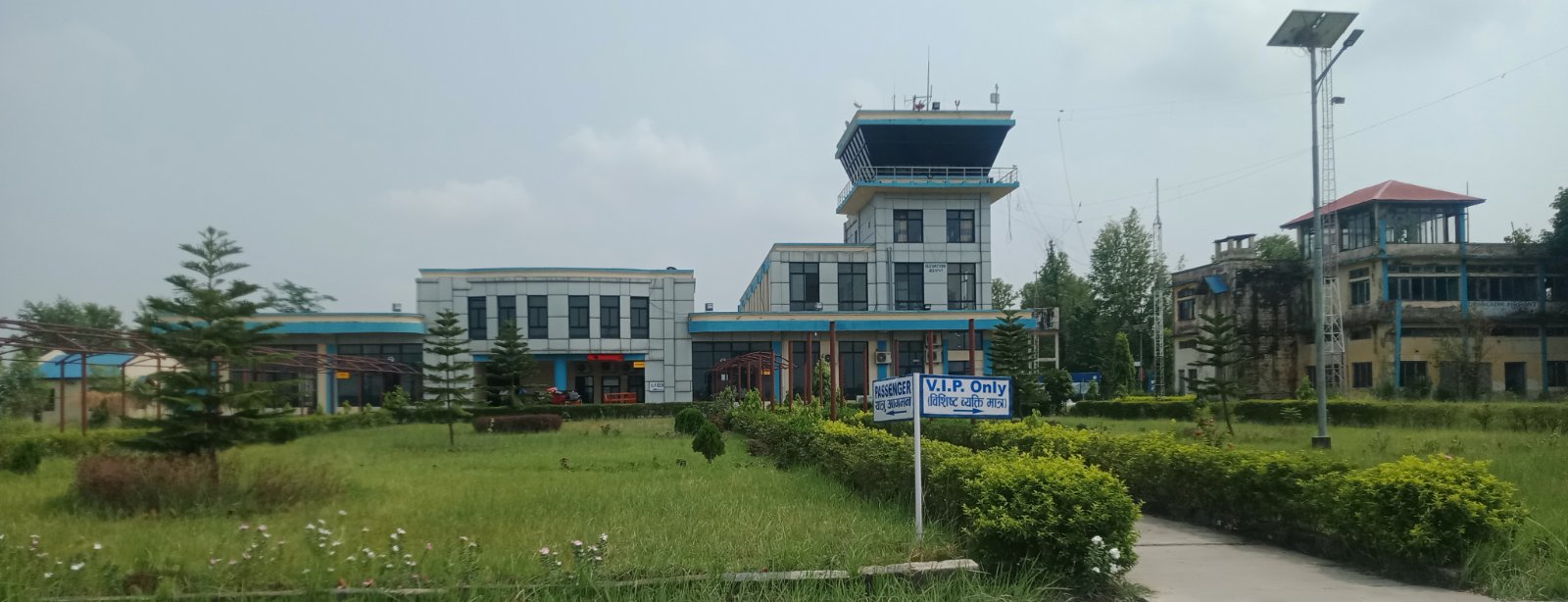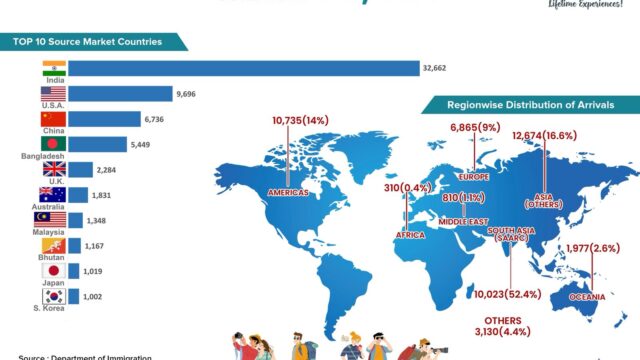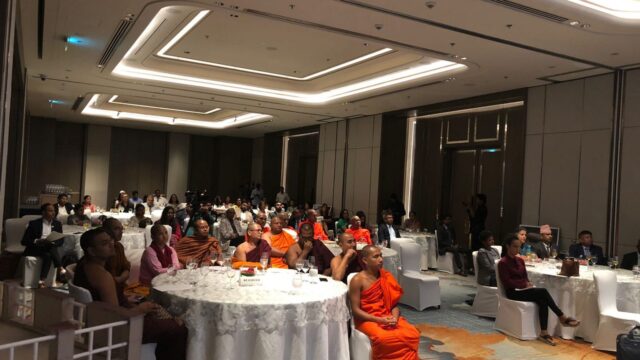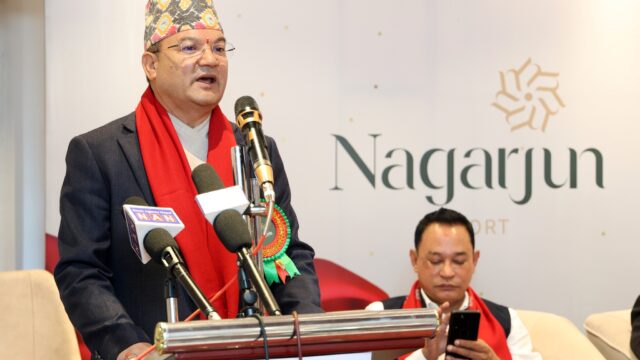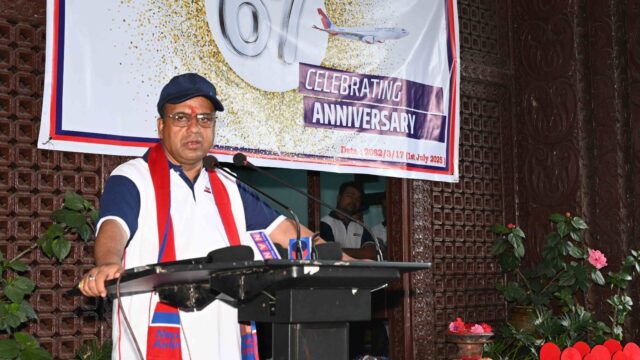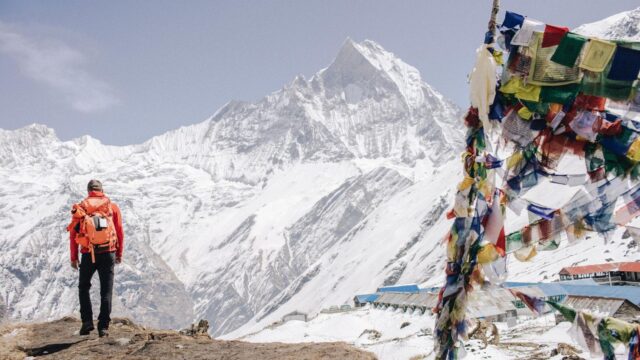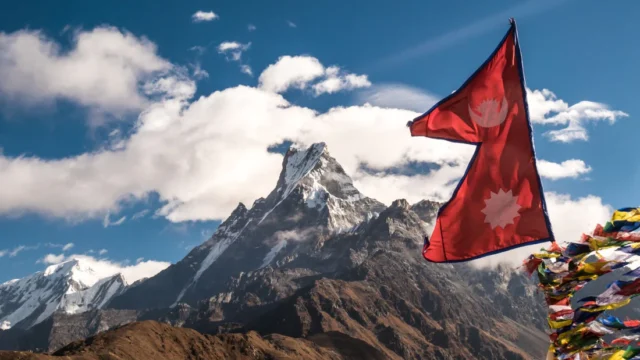Seven years after being displaced from Shuklaphanta Municipality due to the Mahakali Irrigation Project, Bhagarathi Bohara and her family now face the possibility of losing their home once again, this time to the proposed expansion of Dhangadhi Airport.
After years of hardship in a makeshift thatched house, the Bohara family had relocated to Geta, near the Dhangadhi Airport, in 2021. Ironically, that same year, the government announced plans to expand the airport by acquiring 258 bigha of land, placing them, and hundreds of other families, in yet another limbo. “We could be evicted at any time,” said Bhagarathi. “If the government allocates the budget, the work could start immediately.”
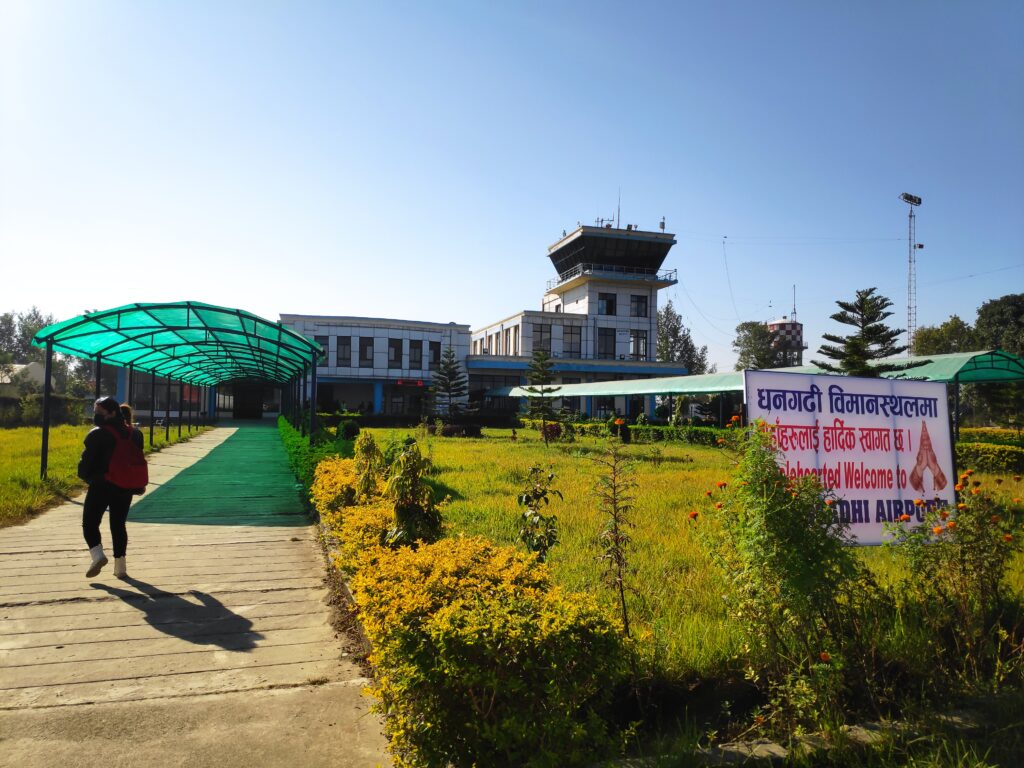
Hundreds Caught in Uncertainty
Bhagarathi’s incomplete five-room house stands just 500 metres from the airport boundary. Her family hesitates to invest further in a home that might soon be demolished. This sense of uncertainty is shared by over 460 households in Dhangadhi Sub-Metropolitan Wards 11 and 13 and Godawari Municipality Ward 5.
Residents say they are unable to sell land, build new structures, or use their property as collateral. Even banks have declined land-based loans due to the looming uncertainty. “We thought proximity to the airport would be a benefit, but now it feels like a curse,” said Lokraj Bhatta, coordinator of the Geta Airport Settlement Coordination Committee.
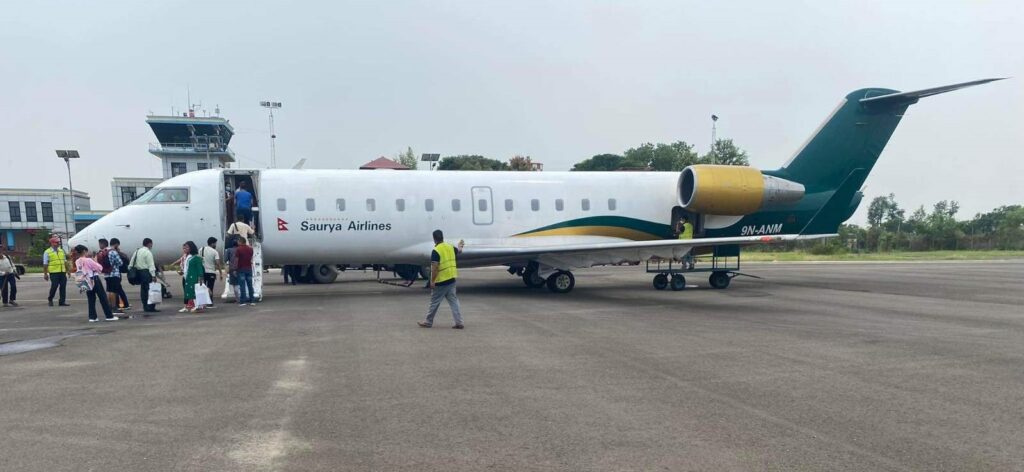
Petition Filed Over Rights Violations
On May 29, affected residents led by Lal Bahadur Mahara filed a complaint at the National Human Rights Commission (NHRC) Sudurpaschim Province Office, accusing the government of moving forward with airport development plans without community consultation. The complaint cites violations of constitutional rights, including the right to housing, food, property, and women’s rights.
“The announcement created psychological fear among residents,” the complaint reads. The petition also highlights how basic services, housing, education, healthcare, and access to financial services, have been directly impacted by the prolonged limbo.
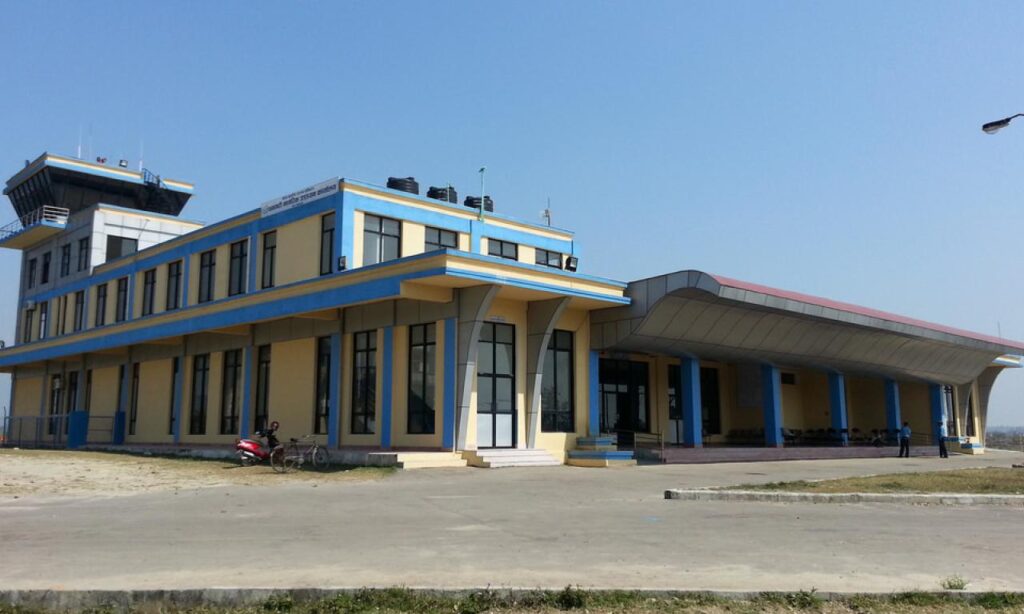
No Budget, No Progress
While the Civil Aviation Authority of Nepal (CAAN) had allocated Rs1 billion for airport expansion in 2021, no funds were released. Plans to extend the runway from 1,800 to 2,500 metres and acquire additional land have since stalled. The federal budget for FY 2025–26 once again did not allocate any funding for the project.
The master plan, approved in FY 2020, envisioned modern airport facilities such as a 45-metre-wide runway, terminal building, helipads, cargo infrastructure, and rescue services. However, according to Ganesh Bahadur Singh, the current chief at Dhangadhi Airport, “There’s no budget, so nothing has moved forward.” He added that he wasn’t in charge when the Detailed Project Report (DPR) was prepared and couldn’t confirm if affected locals were consulted.
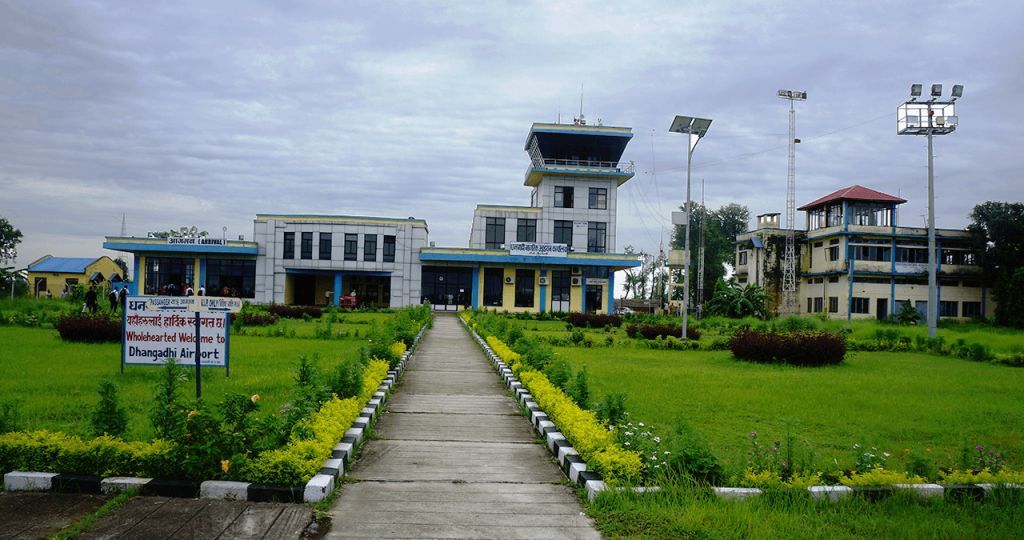
Compensation Concerns Remain
Another key concern is compensation. Locals demand market-rate payment for land, but officials acknowledge that government land valuations are significantly lower than private rates. “People expect market prices, which we can’t offer,” Singh admitted.
Locals also allege that authorities have done little to address their concerns. “We’ve raised these issues at various levels, but no one listens,” said Bhatta. The lack of clarity has rendered their land practically worthless, limiting financial opportunities and long-term planning.
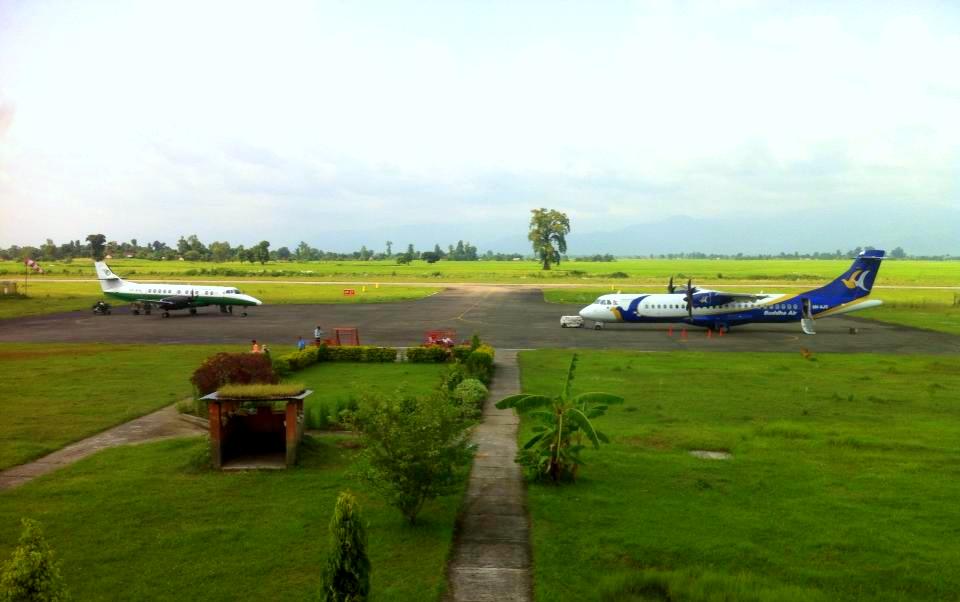
NHRC Responds
Prakash Dutta Bhatta, NHRC Chief of Sudurpaschim Province, confirmed receipt of the complaint. “We will conduct on-site monitoring and interact with affected individuals. No project should violate the constitutional rights of citizens,” he stated.
A Human Rights Issue, Not Just an Infrastructure Delay
What was once envisioned as a modern gateway to Far-Western Nepal now stands as a stalled infrastructure dream, shrouded in confusion and discontent. As the government delays action, without a clear plan, communication, or compensation, the lives of hundreds remain in suspense.
Residents demand clarity: either fair compensation and resettlement or formal cancellation of the project. “We just want the government to decide,” one local said. “Let us live in peace or relocate us with dignity. But we can’t continue living in fear.”
Source: Kathmandu Post
